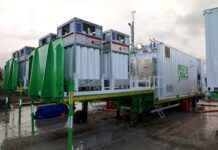
Mott MacDonald has begun preparing the detailed design of the solids management component of a new sewerage treatment plant in Port Moresby, Papua New Guinea. The project, undertaken on behalf of the Independent Public Business Corporation, forms part of the wider Port Moresby Sewerage System Upgrade Project (POMSSUP).
Rapid urbanisation in Port Moresby, due to an increase in population and associated socioeconomic activities, has led to a rise in the volume of sewage effluents. Due to this, the existing sewerage system needs to be upgraded to reduce and prevent untreated sewage from being discharged into the sea. This will protect the local marine ecosystem, as well as the livelihoods and sources of income of the local people, while also reducing health risks.
Stage 1 of the POMSSUP scheme will see the construction of the sewage treatment plant in Kila Kila, capable of treating flows of 18,400 cubic meters per day for approximately AU$80 million. Infrastructure consisting of 13 pumping stations, a 13km trunk sewer and 15km branch sewer will also be constructed or rehabilitated as part of the project.
For Stage 2 of the project, Mott MacDonald has developed technical solutions to expand the treatment plant capacity to 25,700 cubic metres per day, as well as reducing solids produced at the site and generating biogas for power generation for an approximate project value of AU$50 million. The consultancy will design the process, mechanical, hydraulic, civil and building services for the primary sedimentation tanks, dissolved air flotation pre-thickening units, gravity belt thickeners, anaerobic digesters and gas engines, including all associated equipment and pumps.
Ed Ptolomey, Mott MacDonald’s project director, said: “We will carefully tailor our design to cater for local climatic events, such as severe weather conditions, ambient temperature and potential earthquakes. We will also design a system that is suitable for the local operating environment, skill levels and supply chains. Sustainability is seen as key to the long-term success of the scheme through training the local community and workers in awareness activities to learn effective and practical sanitation and hygiene practices.”
“On this project, we will utilise our experience of designing treatment plants featuring solids management systems, such as the Rosedale wastewater treatment plant expansion in New Zealand,” Ed added.
Construction of the sewerage treatment plant upgrade is due to be completed in summer 2018.







